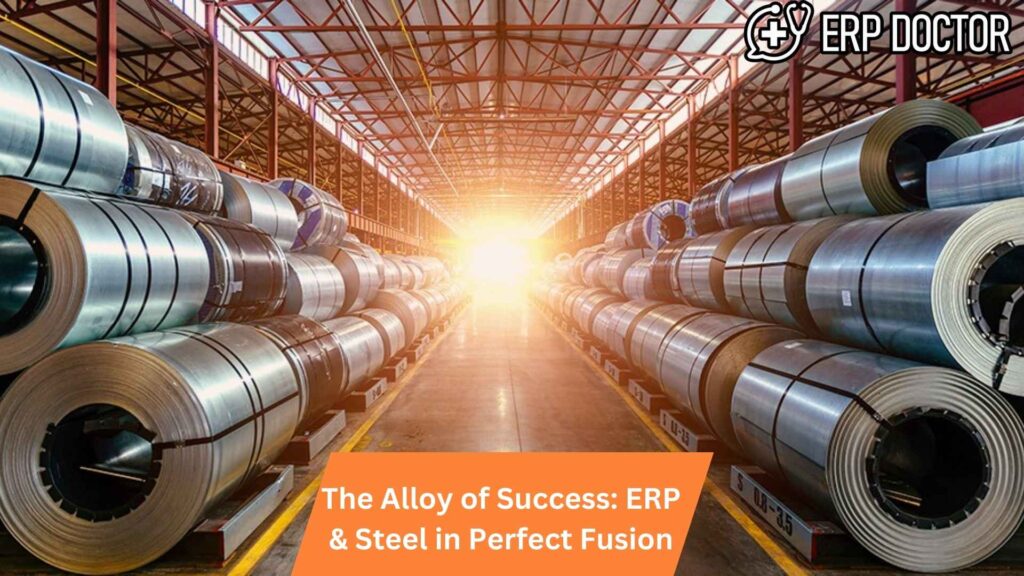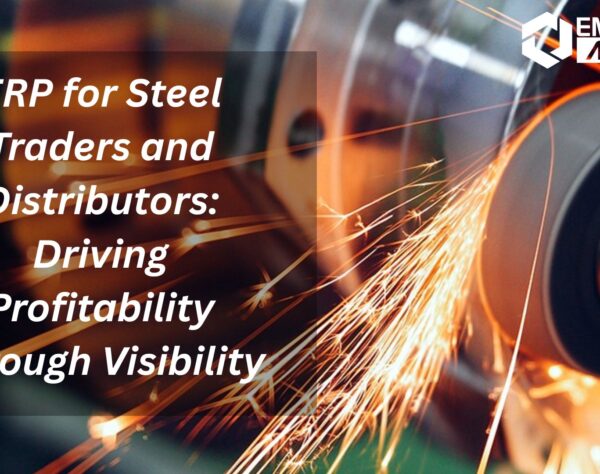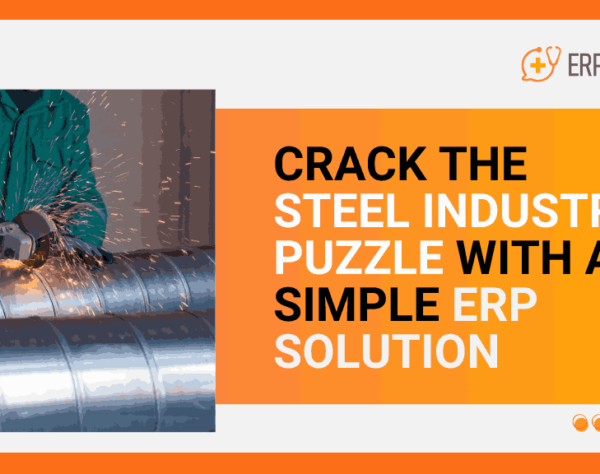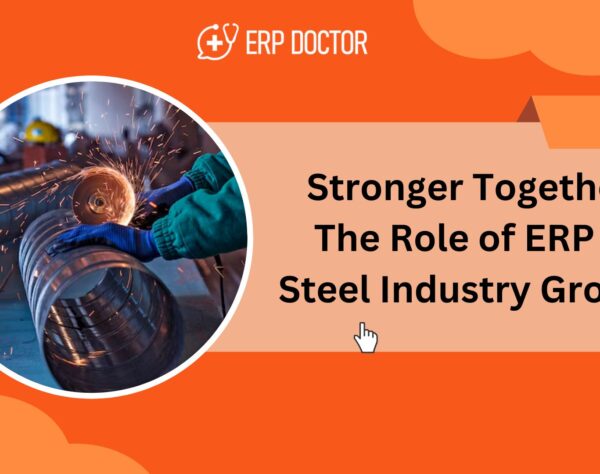
The Alloy of Success: ERP & Steel in Perfect Fusion

Steel Reinvented: How ERP Shapes the Next Era of Manufacturing
The steel industry is a backbone of global infrastructure, powering sectors from construction to automotive manufacturing. However, steel production is a complex process that demands precision, efficiency, and cost optimization. Many companies struggle with inventory management, production delays, fluctuating raw material costs, and supply chain inefficiencies. This is where ERP (Enterprise Resource Planning) comes in as a game-changer, transforming steel businesses by integrating and streamlining operations for enhanced productivity.
Challenges in the Steel Industry Without ERP
The absence of a unified system like ERP creates numerous inefficiencies:
- Unorganized inventory leading to overstocking or raw material shortages.
- Production bottlenecks due to poor planning and manual scheduling.
- Lack of real-time data for cost tracking and operational control.
- Quality control issues due to disjointed reporting systems.
- Supply chain disruptions causing delivery delays and financial losses.
ERP solutions address these challenges by offering a centralized, data-driven approach, ensuring seamless coordination across all departments.
How ERP Optimizes Steel Industry Operations
1. Smarter Inventory & Raw Material Management
Steel production depends on a steady supply of raw materials like iron ore, scrap metal, and alloys. ERP systems provide real-time tracking of inventory, ensuring optimal stock levels, automated procurement, and minimal wastage.
2. Enhanced Production Planning & Scheduling
ERP helps steel manufacturers streamline production workflows, minimizing downtime and reducing bottlenecks. It ensures just-in-time (JIT) production, leading to better utilization of machinery and labor.
3. Cost Control & Financial Management
Fluctuating raw material prices can impact profitability. ERP systems offer real-time cost monitoring, enabling businesses to adjust pricing strategies, manage expenditures, and improve budgeting accuracy.
4. Quality Control & Compliance Management
Ensuring consistent steel grade, strength, and durability is crucial. ERP systems integrate quality checkpoints throughout the production cycle, ensuring compliance with industry standards and reducing defects.
5. Supply Chain Optimization & Logistics Management
ERP systems streamline procurement, vendor management, and logistics, ensuring raw materials arrive on time and finished products are delivered without delays.
6. Real-Time Analytics & Reporting
With ERP’s built-in data analytics, steel manufacturers can gain real-time insights into production efficiency, material consumption, and financial performance, enabling data-driven decision-making.
7. Automated Maintenance & Asset Management
Steel plants rely on heavy machinery that requires regular maintenance. ERP solutions automate maintenance scheduling, preventing unexpected breakdowns and reducing downtime.
8. Seamless Integration with IoT & Industry 4.0
Modern ERP systems integrate with IoT (Internet of Things) sensors, tracking furnace temperatures, machine performance, and energy consumption to optimize productivity.
9. Scalability for Growth & Global Expansion
For steel manufacturers looking to expand, ERP provides multi-location management, ensuring consistency across multiple plants and markets.
10. Workforce & HR Management
Steel production requires skilled labor. ERP solutions manage workforce scheduling, payroll, training, and compliance, ensuring a well-coordinated and efficient workforce.
The Future of Steel with ERP
Steel companies that embrace ERP solutions gain a competitive advantage by automating operations, improving quality control, and optimizing costs. As the industry moves towards digital transformation, integrating ERP with AI, IoT, and predictive analytics will further enhance productivity and sustainability.
The fusion of ERP and steel manufacturing creates an ecosystem where efficiency, precision, and cost-effectiveness thrive. Businesses that adopt ERP gain better control over production, inventory, supply chains, and financial management. In today’s competitive market, investing in ERP technology is not just an option but a necessity for scaling operations, enhancing profitability, and staying ahead in the evolving steel industry.
FAQs
1. How does ERP improve production efficiency in the steel industry?
ERP optimizes production planning, reduces downtime, and ensures real-time tracking of processes for seamless operations.
2. Can ERP help steel manufacturers reduce raw material costs?
Yes, ERP enables real-time cost tracking, automated procurement, and better vendor management, reducing excess spending on materials.
3. What role does ERP play in quality control for steel production?
ERP integrates quality checkpoints at every production stage, ensuring compliance with industry standards and reducing defects.
4. Is ERP suitable for small and mid-sized steel companies?
Yes, ERP solutions are scalable and customizable, making them beneficial for both small-scale and large steel manufacturers.
5. How does ERP improve inventory management for steel manufacturers?
ERP provides real-time stock updates, automated reordering, and accurate demand forecasting, preventing overstocking or stockouts.
6. Can ERP integrate with IoT for smart steel manufacturing?
Yes, modern ERP systems connect with IoT devices to monitor machine performance, energy consumption, and real-time production data.
7. How does ERP support financial management in the steel industry?
ERP automates accounting, invoicing, budgeting, and cost control, ensuring transparent financial management.
8. Does ERP help in workforce and HR management for steel plants?
Yes, ERP streamlines payroll, shift scheduling, compliance, and employee training to enhance workforce efficiency.
9. How does ERP optimize supply chain and logistics for steel manufacturers?
ERP ensures efficient vendor management, timely procurement, and seamless delivery tracking, reducing supply chain disruptions.
10. What are the long-term benefits of implementing ERP in the steel industry?
ERP improves operational efficiency, cost savings, quality control, data-driven decision-making, and scalability for long-term business growth.







